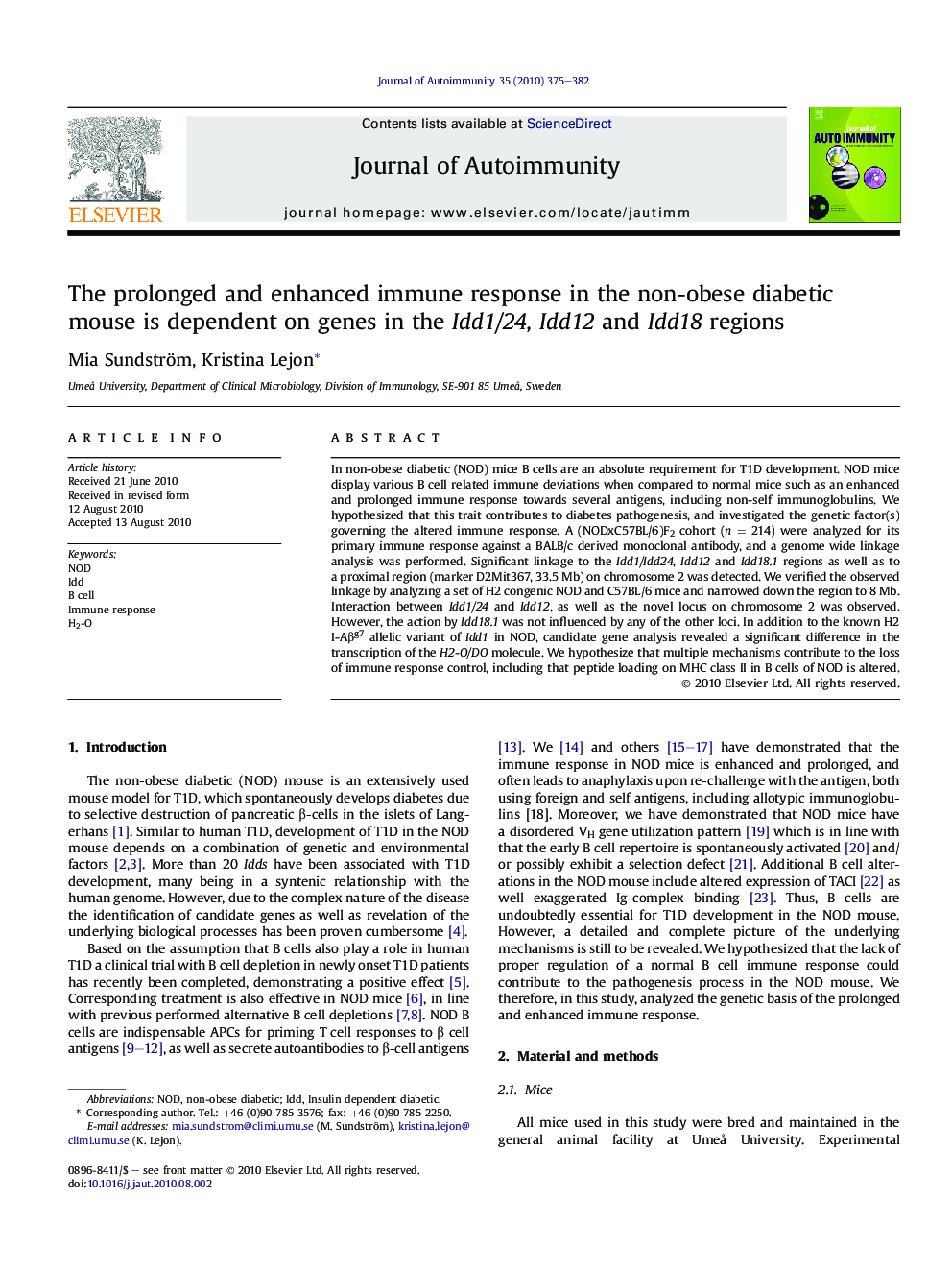| Article ID | Journal | Published Year | Pages | File Type |
|---|---|---|---|---|
| 3368186 | Journal of Autoimmunity | 2010 | 8 Pages |
In non-obese diabetic (NOD) mice B cells are an absolute requirement for T1D development. NOD mice display various B cell related immune deviations when compared to normal mice such as an enhanced and prolonged immune response towards several antigens, including non-self immunoglobulins. We hypothesized that this trait contributes to diabetes pathogenesis, and investigated the genetic factor(s) governing the altered immune response. A (NODxC57BL/6)F2 cohort (n = 214) were analyzed for its primary immune response against a BALB/c derived monoclonal antibody, and a genome wide linkage analysis was performed. Significant linkage to the Idd1/Idd24, Idd12 and Idd18.1 regions as well as to a proximal region (marker D2Mit367, 33.5 Mb) on chromosome 2 was detected. We verified the observed linkage by analyzing a set of H2 congenic NOD and C57BL/6 mice and narrowed down the region to 8 Mb. Interaction between Idd1/24 and Idd12, as well as the novel locus on chromosome 2 was observed. However, the action by Idd18.1 was not influenced by any of the other loci. In addition to the known H2 I-Aβg7 allelic variant of Idd1 in NOD, candidate gene analysis revealed a significant difference in the transcription of the H2-O/DO molecule. We hypothesize that multiple mechanisms contribute to the loss of immune response control, including that peptide loading on MHC class II in B cells of NOD is altered.
